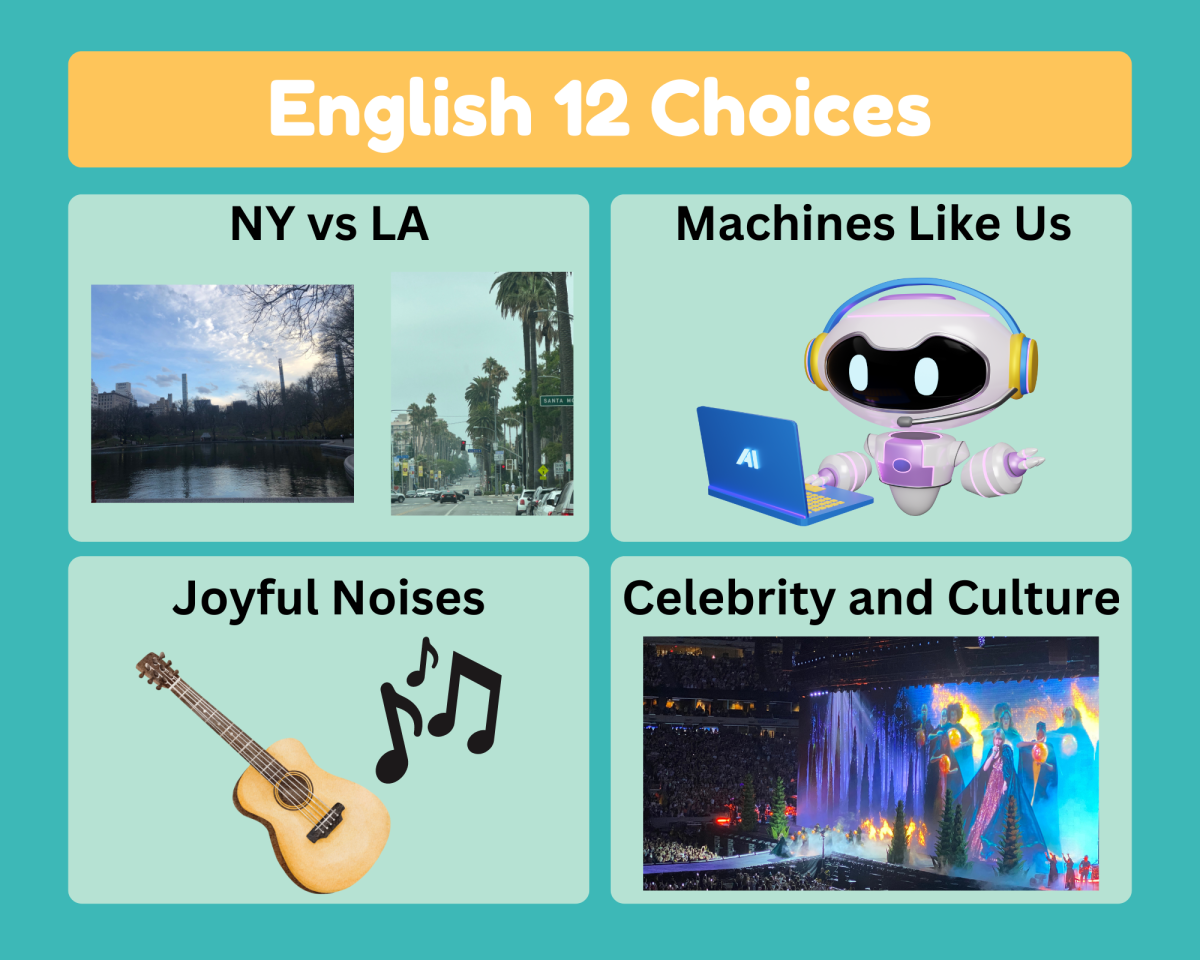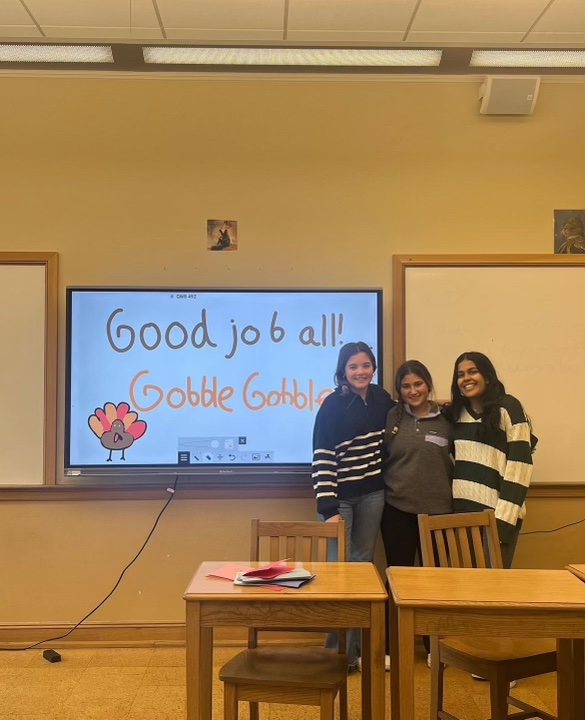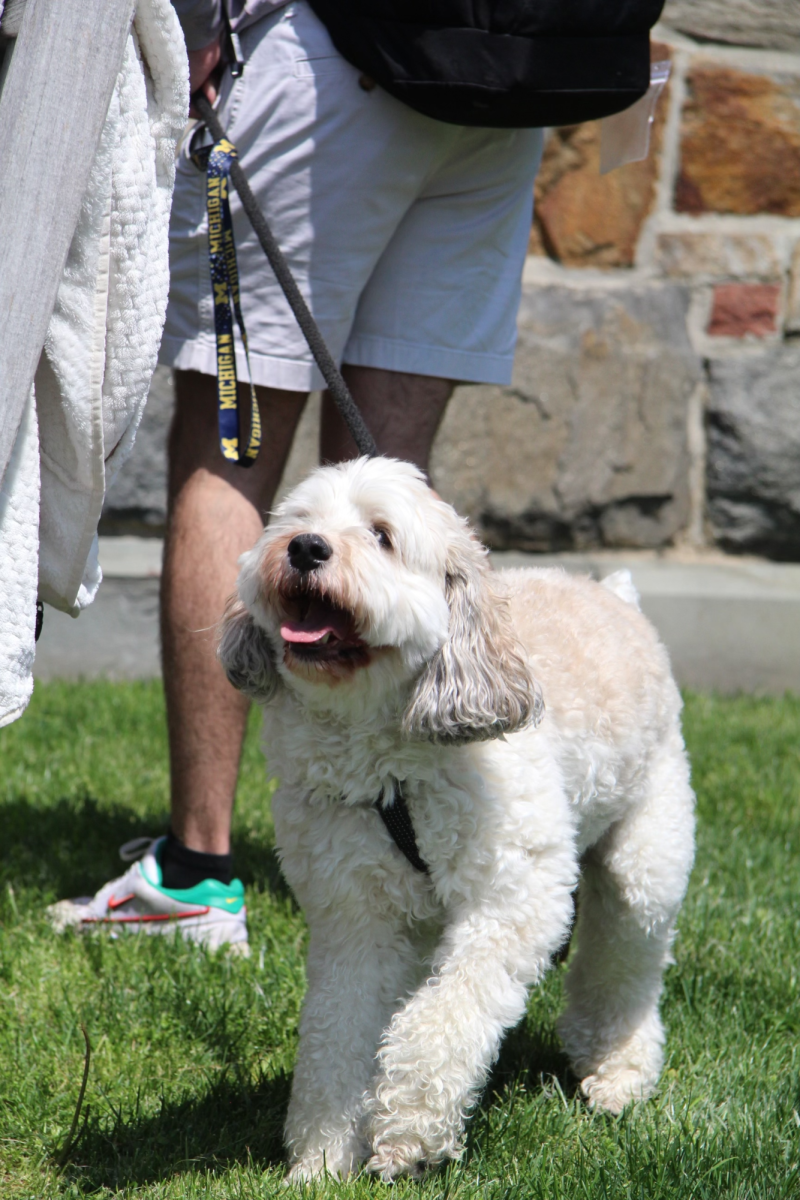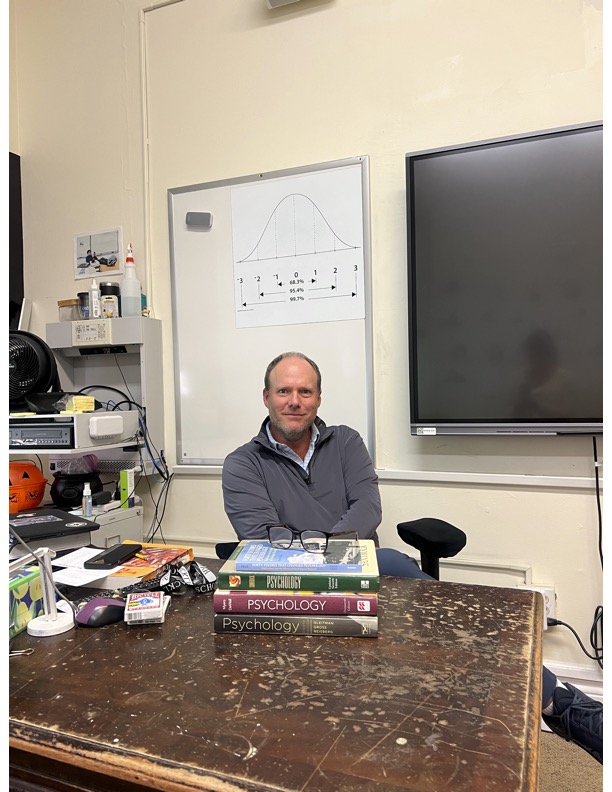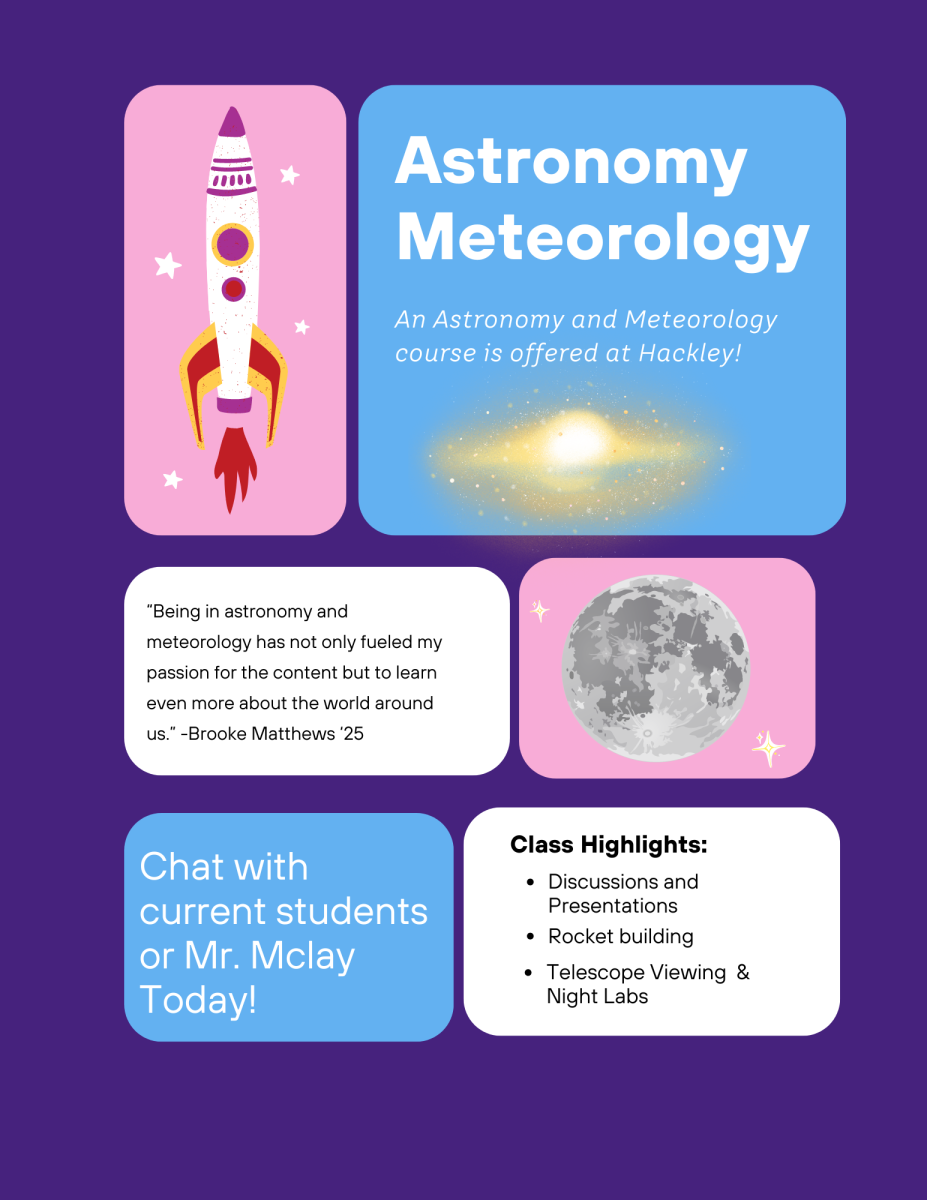What do Taylor Swift, the murderous computer Hal from 2001: A Space Odyssey, the culture of New York and LA, and musical composition all have in common? They’re all material that will be analyzed in one of the new English senior electives being offered for next year.
For twelfth-grade students, English operates differently than other high school English courses at Hackley. For ninth, tenth, and eleventh-grade courses, each student takes the same English course and, for the most part, reads the same texts, although there is some variation depending on the teacher. For twelfth grade, students have a choice of their English course through ranking the possible options.
In ninth, tenth, and eleventh grade students learn how to write, analyze text, and offer and support an interpretation, essentially all of the skills and techniques needed to form strong analytical essays. By the time students reach the twelfth grade at Hackley, their writing skills are very well set in; therefore, the twelfth-grade courses can take more liberty in exploring different parts of English. Seniors are given the opportunity to use the skills they learned in past years and then apply them in new and exciting ways.
Brigid Moriarty, English Department Chair and Twelfth-Grade Dean described how the twelfth-grade courses are designed to help students develop a greater interest in English as they go to college.
“When creating the courses, we thought about how we can meet students where they are and help foster an interest in English that they can take with them beyond the Hilltop,” said Ms. Moriarty.
The current twelfth-grade English courses have been in place for the past three years. They had a choice of three courses: Panopticon Prime, Talking to Dead People, and Comedies of Courtship. This year the English department has decided to change the courses. There is now a choice of four classes, which include the following: Machines Like Us: What AI Fiction Asks Us, Joyful Noises: Music, Literature, & Culture, NY vs. LA: The Art & Literature of Two Myth-Making Cities, and Celebrity and Culture: Close Reading Texts and Contexts.
The English department likes to change the course options every three to four years to keep them new and intriguing, which can get students excited to take the class.
Along with changing the course options for next year, the English department also looked to alter the end-of-year project for the seniors. All of the details have not yet been fully fleshed out; however, instead of having an end-of-year paper, which has been a tradition for the past few years, there will be a more open project of a “capstone.”
The paper that exists now allows twelfth-grade students to write their paper on any text, song, movie, television show, or play of their choosing. With the new English courses, the English department wants to keep this sense of individuality that students get with the project. The capstone project is similar to the paper in that it is self-driven by the student. However, what differs with the capstone project is that you have more openness in the kind of writing you decide to fulfill.
Ms. Moriarty gave the example that a student in Mr. Lobko’s music class could do their capstone project on songwriting and, with that, write a song and then write a bit of an analytical piece reflecting on how they arrived at that song. Ms. Moriarty is also considering having a symposium at the end of the year where a student can showcase their work to a small group of people.
Another aspect of the twelfth-grade English course that has changed throughout recent years is the inclusion of critical theory in writing. In the past, students were required to use theory in the writing of their final paper and sometimes in their writing in class. Using critical theory in the final paper is now optional, and teachers have continued to use theory less in their curriculum. With the new English courses, they will continue along this similar trend. Some teachers will continue to use theory in some cases, where it connects well with their text, but it will not serve as the guiding factor of the courses.
Machines Like Us: What AI Fiction Asks Us
The first choice: Machines Like Us is a course designed to analyze the impact of machines on humanity and consider how humans can also be like machines. The course was created and will be taught by Dr. Richard Robinson. Dr. Rob has been thinking about this class for a while and traces the origins of it back to his childhood. The machines that were present on television then were seen through cyborgs, computer models in Star Trek, and a murderer AI computer in 2001: Space Odyssey.
Dr. Rob looks to analyze AI fiction through some of the following questions: what it means to be human? Who gets to decide what humanity entitles us to do? What does humanity demand of us?
“AI fiction is about how much free will we have compared to how much we are programmed,” said Dr. Rob.
The course will look at fiction that explores technology and machines as well as themes of gender, race, class, and more. In the course students will write analytical essays, response pieces, and short fiction. Finally, the course will follow news surrounding AI and experiment with AI with poetry and fiction.
Joyful Noises: Music, Literature, & Culture
The second course option, Joyful Noises, will be taught by Wil Lobko. In it, students will analyze music as a text.
Mr. Lobko wants the class to be guided by some of the following questions: “How is literature driven forward by music? How can we treat music like literature?” Mr. Lobko hopes that students will have a platform for their creative writing in the course. Mr. Lobko also wants students to analyze the cultural discourse surrounding music and open the floor to questions about race and gender that music provides.
Mr. Lobko described the importance of combining literary elements of English and music to him: “I have a shortlist of five things that I use as a self-check to make sure that I am as happy as I can be. Three of the five things include: When was the last time I read something cool? When was the last time I wrote something that interested me? Finally, when was the last time I listened to something good?”
This class combines the analysis of music with the analysis of the social discourse surrounding music to generate new understandings and interesting conversations.
NY vs LA: The Art & Literature of Two Myth-Making Cities
The third twelfth-grade English course is NY vs LA. This class will look at texts set in both New York and Los Angeles, in which students will look to analyze the impact of these two myth-making cities. Sean Francis, the teacher of this course, created the idea for the class by reflecting on the fiction relating to the two major cities. Mr. Francis has lived in NY and LA for a combined 21 years of his life and has experienced the effects of living in places that significantly affect the culture of art and trends.
When describing the culture of NY and LA, Mr. Francis used the destruction of NY and LA in films to showcase that people enjoy watching these places suffer due to their jealousy of the ones who live there. Mr. Francis explained that television, movies, media, and advertising cover these cities so much because they are the cities that determine what is cool and what is not. Essentially, they shape our culture and have an outside influence on who we are as people.
In Mr. Francis’ course, he wants students to analyze questions like: What are the problems that come with these cities’ huge influence on human beings? What can we learn from them about the culture that they produce and the narratives that they shape? Mr. Francis’ course also looks to delve into the multicultural center of these cities. Through the texts, students will analyze the race-based violence that has erupted in these cities, along with the problems and benefits of a multicultural society and how that plays into different communities.
One of the main reasons Mr. Francis chose to teach this course is that he hopes to promote a more interdisciplinary focus on analyzing movies, paintings, and architecture along with different texts.
“Kids today are more visual. So, I want to incorporate notions of learning how to analyze photos, paintings, and architecture. I want to allow seniors to make connections across literary and visual media,” said Mr. Francis.
Celebrity and Culture: Close Reading Texts and Contexts
The fourth course will use Taylor Swift as a case study for celebrities and their roles in society.
Ms. Moriarty, the teacher of the class, described the process of creating the class subject as a “passion project.” In order to develop the idea for the course, she thought about what could be an interesting topic that is less traditional than typical analytical English and then reflected on how the student’s analytical skills can be applied to the topic.
Ms. Moriarty chose to teach a class on Taylor Swift due to the growing press on her, as well as classes taught at other schools about her, and to use her as a source of academic study.
“There is so much critical discourse about her, and it is all so new and fresh. The press is not just about her work; it’s about her as a person and what she represents,” said Ms. Moriarty.
Ms. Moriarty chose Taylor Swift for two main reasons: first, she’s an artist who has a body of work that can be studied, and second, she is a cultural text and symbol.
“There are all sorts of debates and conversations you can have around her identity, her words, what she represents, how she was marketed, includes absolutes, and what that says about our culture,” said Ms. Moriarty.
In the class, students will close-read Taylor Swift’s lyrics as texts and will think about close-reading the culture that we live in and questions regarding who are in society and how others are portrayed in the media.
This will be Ms. Moriarty’s first time teaching twelfth graders, and it is extra special to her because she is the dean for next year’s class of twelfth graders.

